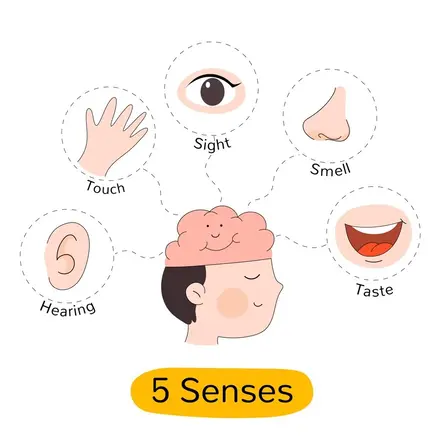Preventive Healthcare
What is Sleep Apnea: Symptoms, Causes, and Treatment Options
1378 Views
0

Do you often wake up feeling tired and groggy, despite getting a full night's sleep? Do you snore loudly or gasp for air while sleeping? If so, you may be suffering from sleep apnea. This common but serious disorder affects millions of people worldwide and can have significant impacts on overall health and well-being. In this blog post, we'll explore the types, symptoms, causes, tests, and treatments of sleep apnea to help you better understand this condition and find relief.
The different types of sleep apnea
There are three main types of sleep apnea, each with distinct characteristics and causes.
- The most common type is obstructive sleep apnea (OSA), which occurs when the muscles in the throat relax during sleep, causing a blockage of the airway.
- Central sleep apnea (CSA) is less common. It occurs when there is a failure of communication between the brain and respiratory muscles, resulting in interrupted breathing patterns during sleep.
- Mixed sleep apnea combines elements of both OSA and CSA, making it a more complex form of the condition to diagnose and treat.
- It's important to note that while these different types have varying symptoms and causes, they all share one major risk factor: obesity. Excess weight can lead to an accumulation of fatty tissues around the airway that contribute to obstruction or breathing disturbances during sleep.
Symptoms of sleep apnea
- One of the most common symptoms of sleep apnea is loud snoring, which can also be accompanied by gasping or choking sounds during sleep.
- Another symptom of sleep apnea is daytime fatigue and excessive tiredness, even after what should have been a full night's rest. This can lead to difficulty concentrating at work or school, as well as irritability and mood swings.
- People with sleep apnea may also experience frequent waking during the night, often due to shortness of breath or a feeling of suffocation. They may wake up with headaches in the morning and experience dry mouth or sore throat upon waking.
- Other potential symptoms include high blood pressure, depression, weight gain, decreased libido (sex drive), and memory problems. If you are experiencing any combination of these symptoms regularly, it's important to speak with your doctor about getting tested for sleep apnea and exploring available sleep apnea treatment options.
Causes of sleep apnea
- Sleep apnea is a sleep disorder that affects millions of people worldwide. Several factors can contribute to the development of this condition, including both lifestyle and medical factors.
- One common cause of sleep apnea is excess weight or obesity. This is because excess fat deposits in the throat area can narrow the airways, making it difficult to breathe properly during sleep.
- Another possible cause of sleep apnea is genetics. If you have a family history of this condition, you may be at an increased risk of developing it yourself.
- Certain medical conditions can also increase your likelihood of experiencing sleep apnea. For example, diabetes and high blood pressure have been linked to this disorder.
Other factors that may contribute to the development of sleep apnea include smoking and alcohol consumption. These substances can relax the muscles in your throat and interfere with breathing during sleep.
Tests for sleep apnea
There are two main types of sleep studies: polysomnography (PSG) and home sleep testing (HST). PSG involves spending the night in a specialised facility where your breathing, heart rate, brain activity, blood oxygen levels, eye movements and muscle activity will be monitored. HST involves using portable equipment that can be set up at home for monitoring while you sleep.
During the study, your healthcare provider will look at several factors such as the frequency of breathing disruptions per hour, how long each episode lasts and whether there is any oxygen desaturation during these episodes. Based on this information they can determine if you have obstructive or central sleep apnea.
It is recommended that anyone who suspects they may have sleep apnea undergoes diagnostic testing promptly. This way sleep apnea treatment options can be discussed with your healthcare provider before symptoms become more severe.
Treatment for sleep apnea
Sleep apnea treatment varies depending on the severity of the condition. Mild cases can be treated with lifestyle changes, while more severe cases may require medical intervention.
- One common treatment option is continuous positive airway pressure (CPAP) therapy, which involves wearing a mask over your nose and/or mouth while you sleep. The mask is connected to a machine that delivers a constant flow of air to keep your airways open.
- Other options include oral appliances that help keep the throat open, positional therapy, weight loss programs for those who are overweight or obese, and surgery in extreme cases.
- It's important to work closely with your doctor to determine the best course of treatment for you. Compliance with prescribed therapies is also essential for the successful management of sleep apnea.
- In addition to professional treatments, there are also lifestyle changes that can improve symptoms such as avoiding alcohol and sedatives before bed, maintaining a regular sleep schedule, and sleeping on your side instead of your back.
Conclusion
Sleep apnea is a serious medical condition that can severely impact the quality of life. It is important to recognize the symptoms and seek professional help for accurate diagnosis and treatment. There are various types of sleep apnea, with obstructive sleep apnea being the most common. Lifestyle changes such as weight loss and avoiding alcohol consumption before bed can improve symptoms, but in severe cases, medical intervention may be necessary.
Tests such as polysomnography or home sleep testing can provide an accurate diagnosis of sleep apnea. Treatment options include continuous positive airway pressure (CPAP) devices or surgery. If you suspect that you or someone you know has sleep apnea, do not hesitate to seek medical attention. With proper diagnosis and treatment, it is possible to manage this condition and achieve restful nights of uninterrupted sleep. You can rely on us at Metropolis Healthcare Labs for all kinds of diagnostic needs. You can also book a home test on our website with a few clicks. Contact us today to learn more about our services.























 WhatsApp
WhatsApp